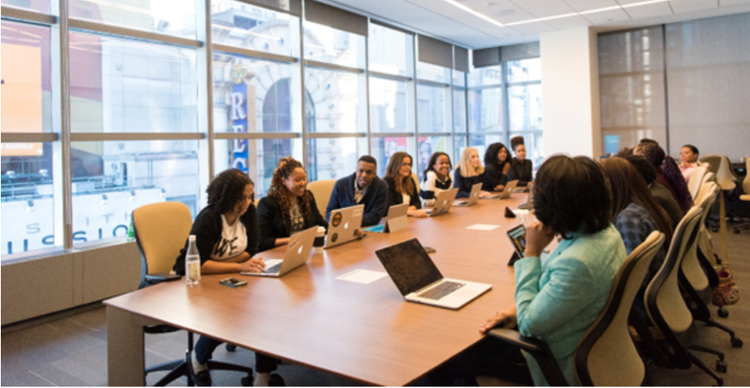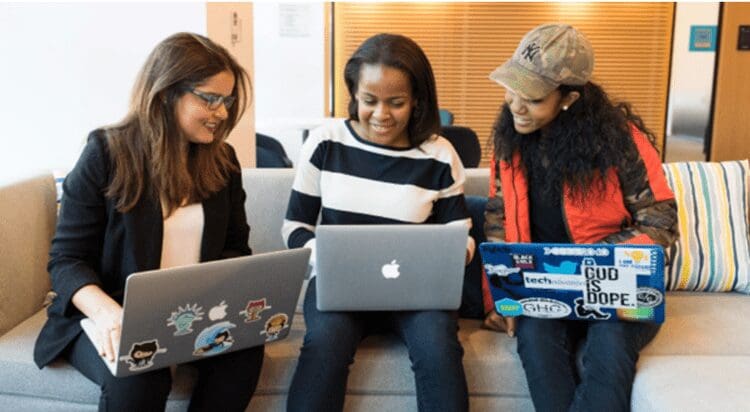Technology is pervasive – it’s influenced commerce, social interaction, entertainment, medicine, city planning, transportation… the list goes on. Maximizing Your Awards Entry: Women in Tech Self-Nominations is one of the key ways that technology helps highlight contributions to these evolving fields. Plus, it seemingly knows more about us than we do ourselves. Every industry on the planet has been impacted by technology in one way or another.
 The importance of technology created with everyone in mind increases as its influence on people and the planet continues to grow. To build technology that is conscious of diverse needs, abilities, and cultures, we need teams reflecting various backgrounds and experiences. This underscores The importance of female mentorship in tech in fostering diverse perspectives and innovative solutions.
The importance of technology created with everyone in mind increases as its influence on people and the planet continues to grow. To build technology that is conscious of diverse needs, abilities, and cultures, we need teams reflecting various backgrounds and experiences. This underscores The importance of female mentorship in tech in fostering diverse perspectives and innovative solutions.
When it comes to establishing these teams, it’s not just about creating them – it’s also about how we foster an environment where everyone can thrive.
There is a great phrase coined by Vema Myers that perfectly illustrates the point:
“Diversity is being invited to the party, inclusion is being asked to dance.”
Here are 6 ways you can be part of the change to make tech more diverse and inclusive:
Promoting Diversity
We need to be dismantling barriers and supporting the development of underrepresented communities along the entire education and career pipeline. Doing so takes concerted efforts from many different players – educational institutions, companies, governments, etc. – but for now we are going to focus on what you can do!
-
Mentor someone
Mentorship is a wildly powerful relationship that has the potential to change someone’s life. You are a trusted ally there to guide them along their journey and introduce them to relevant network connections. But alongside that, you are also there to help them feel like they belong.
Before you claim you don’t have anything to share with someone else, think back to every step that has taken you to where you are now. There is someone out there a step or two behind you who would love to hear about what helped you and the lessons you learnt.
There are established mentorship scheme programs for different community groups that you can join where you are paired with a mentee and optionally follow a mentorship structure over the course of the program. For girls in STEM, a good one is the Student to STEMettes mentorship scheme.
2. Create or Get Involved in Community Groups
Community groups create a space for underrepresented people to feel a sense of belonging. Importantly, they also provide a mechanism for people to learn from each other by hosting events, being in a network and acting as a forum for questions.
Your institution may already have a group that you can join as a member or even as part of the team who runs the group. If there isn’t already a relevant group for you, then start your own! There are likely many others out there who would benefit.
3. Share your Time and Talent
We want to make sure we are passing the ladder down to those who follow us. Thankfully there are many ways to support those who are looking to get into the industry or advance their careers.
Consider hosting a class, speaking on a panel, or doing pro-bono work for an organization that needs your skill set. Think about what types of expertise or unique perspectives you have to share that others can utilize or learn from.
As an extra bonus, these activities not only help others – they also help you grow your skills, industry visibility, and confidence.
Every Day Inclusivity
Inclusion is the real key – it unlocks the potential of diverse teams by enabling people to bring their unique ideas to the table.
Inclusion isn’t something that we only pay attention to during special periods like International Women’s Day or Black History month, it is practiced every day.
What that means to your everyday encounters will differ based on your circumstance, but there are a few inclusive actions worth highlighting:
4. Lead by Example
A company culture is born out of the sum of its parts, the people. Each of us has an opportunity to influence those around us. When we demonstrate inclusive practices, others often follow which establishes an inclusive standard practice. You have real power.
We should all start by taking time to listen, learn, and research about the experiences of others and the inequities that people face. It is a part of allyship, but more importantly it is a stepping stone to being able to create informed, impactful change.
5. Give Space to All Voices in the Conversation
Conversations can often be overtaken by a few key, vocal players. If we want to learn from diverse perspectives, then we need to consider how we are creating space to invite other ideas.
If you tend to be more vocal, try pausing to hear other people’s ideas before speaking. Alternatively, try inviting people into the conversation more directly by asking something like “what do you think?” or “do you have anything to add to that?”. Invitations can help people who are shy or don’t speak up as often. It tells people that you value their opinion. Of course, having a friendly tone here is key to make the invite welcoming.
If you are struggling with speaking up, try speaking up first – it may sound counter-intuitive, but it can often be easier than jumping in later. Kicking off the conversation gets your thoughts heard early and brings you into the rest of the discussion by setting its foundation.
6. Help Spot and Fix Issues in Your Institution
This is one of the most impactful actions you can take for your immediate community. Change doesn’t just happen – it takes someone to question the status quo. I encourage you to challenge practices that aren’t inclusive and drive toward finding a solution.
For example, are you finding that your team isn’t very diverse? If it’s not, ask why. Could it be that candidates are falling out in a certain stage of the hiring funnel, are you not getting enough diverse applicants, is job spec not using inclusive language, etc.?
If your institution has a problem (and there is almost always room for improvement!) then take it upon yourself to bring the right people into the conversation and get it fixed. Be proactive!
Building a more diverse and inclusive industry takes each and every one of us. What are you going to commit to doing? How are you going to be part of the change?
 Read more from Holly
Read more from Holly








